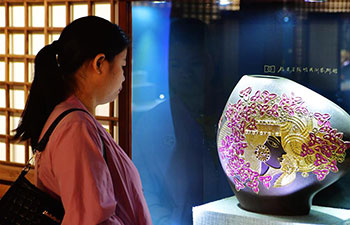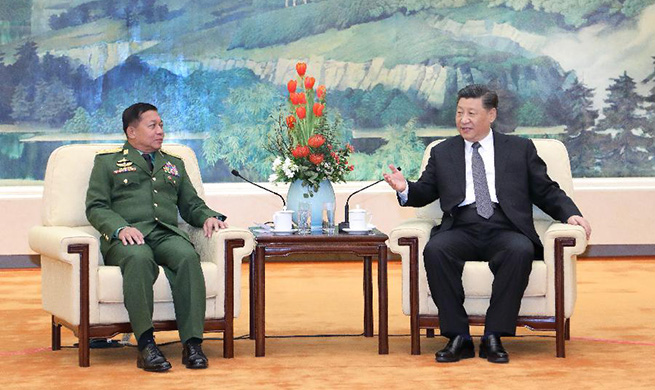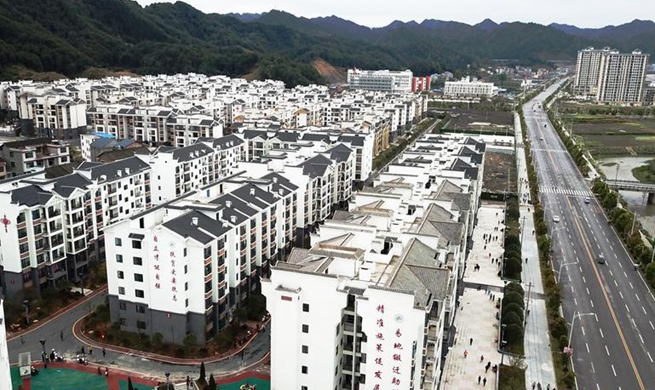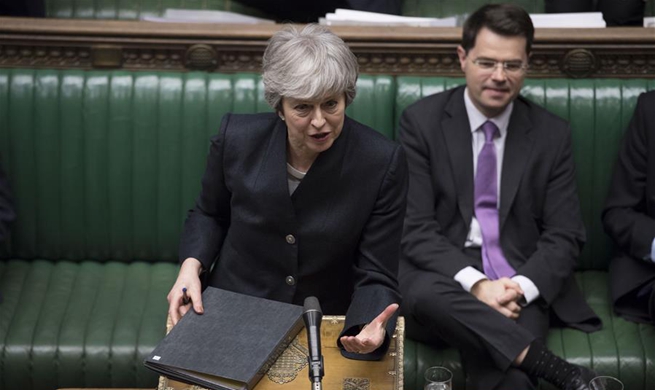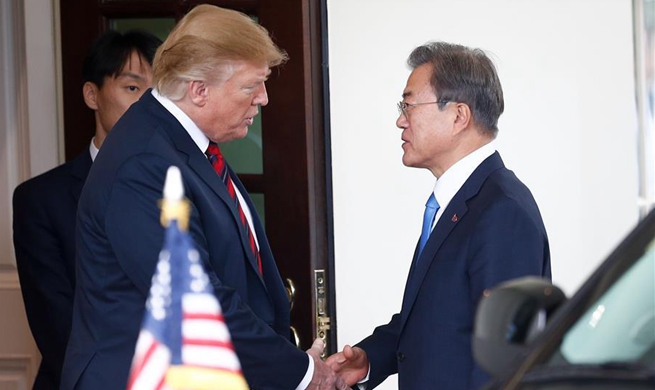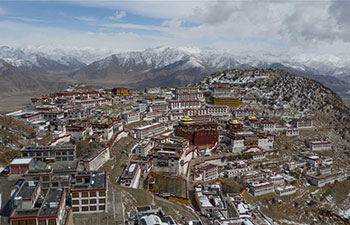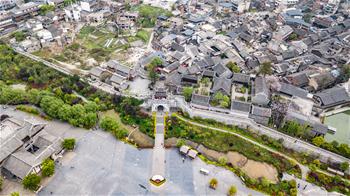WASHINGTON, April 11 (Xinhua) -- As U.S. President Donald Trump finished his meeting with South Korean President Moon Jae-in here on Thursday, U.S. experts said that to realize denuclearization on the Korea Peninsula, parties concerned should focus on reaching "smaller deals" in the short term, which can help set stage for "bigger deals" in the future.
DIVERGENCE REMAINSDESPITE PROGRESS
Before their bilateral meeting, Trump told the media that "smaller deals" could happen "step by step," but both the United States and South Korea are focusing on "the big deal."
"The big deal is we have to get rid of the nuclear weapons," Trump added.
U.S. experts pointed out that both Washington and Seoul have been politically invested much in making sure their dialogues with Pyongyang could continue, despite the current impasse.
"Moon is very invested in making sure that neither side gets frustrated at the lack of progress and decides to give up on the negotiation process," Jenna Gibson, a Korea expert at the University of Chicago, told Xinhua.
"Moon Jae-in in particular has put a lot of time, energy, and personal reputation into making an agreement work, so he will certainly not give up easily and will keep trying to make sure the U.S. is on board with continued negotiations," she said.
Noting that Washington and South Korea both want to denuclearize the Democratic People's Republic of Korea (DPRK), Gibson said that yet their biggest difference is "how likely the two countries think that goal is - and how much leeway they're willing to give the North Koreans as they work toward that goal."
While Moon called for offering Pyongyang economic concession, Trump said it isn't "the right time" to do so.
Troy Stangarone, senior director of congressional affairs and trade at the Washington-based non-profit Korea Economic Institute, also told Xinhua that "what the United States and South Korea would like to see is a roadmap that lays out how the dismantlement of North Korea's weapons programs would take place."
"Within that roadmap there is space for sanctions relief as dismantlement activities take place, which should address North Korea's concern for corresponding measures," he added.
As Trump has clearly denied the possibility of removing now the sanctions against Pyongyang, Gibson said, "It is heartening to hear that Trump is still willing to pursue smaller deals that could be more achievable in the short term and will help set the stage for that important bigger deal."
The experts also argued that the reopening of major inter-Korean economic projects should come after more concrete progress is made in the U.S.-DPRK negotiations, even if just on smaller issues.
"The problem is that there hasn't been enough progress on those smaller negotiations, so it's natural to propose something like economic projects that could possibly jump start further positive movement," said Gibson.
NEW TRUMP-KIM MEETING PENDING SUBSTANTIAL CHANGES
Trump said it is possible to have a third meeting with the DPRK's top leader Kim Jong Un, while Moon said that it is his important task "to maintain the momentum of dialogue" and "express the positive outlook" of a new Trump-Kim meeting to the international community.
However, U.S. experts said such a meeting is unlikely to happen before all parties concerned display greater caution and substantial agreement is made between Washington and Pyongyang.
"I honestly hope the two sides take time to work through these thorny issues rather than just falling back into another summit meeting," Gibson said.
"Without actually taking the time to make sure they were ready to actually agree on anything once the two leaders got to the table, I can't imagine a third summit would turn out any different at this point," she said.
For his part, Stangarone pointed out that "Trump was always unlikely to make a full down payment on North Korea's nuclear program without the promise of North Korea fully dismantling the program."
"Unless something substantively changes, a third summit in the near future seems unlikely," he said, adding that it need to "begin bridging the gaps" between the United States and the DPRK.
"They don't need to solve everything, but they need to narrow the space to give Trump and Kim an opportunity to find a resolution," the expert added, otherwise, "a third summit would risk repeating the outcome from Hanoi."
Douglas Paal, vice president for studies at the Carnegie Endowment for International Peace, also told Xinhua that a third Trump-Kim meeting "would be unwise in the absence of significant new developments."
Washington and Pyongyang "are not on the same page and have not been for quite a while," Paal noted.
Nevertheless, Michael O'Hanlon, Brookings Institution's senior fellow, told Xinhua that "the big question is in fact whether Moon will stay tough enough on sanctions to make the strategy viable and send Kim Jong Un clear messages -- and will Trump be flexible enough on the scale and scope of any deal to make something short of complete denuclearization possible, should reasonable terms be offered?"
Holding a view that a full denuclearization is not possible, O'Hanlon said, "I don't expect today's summit to resolve that for good but am glad they are talking!"
(Matthew Rusling also contributed to the story.)
